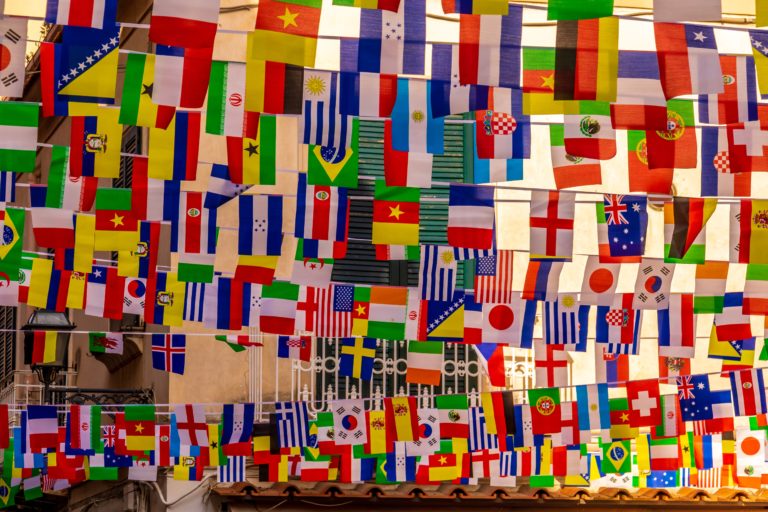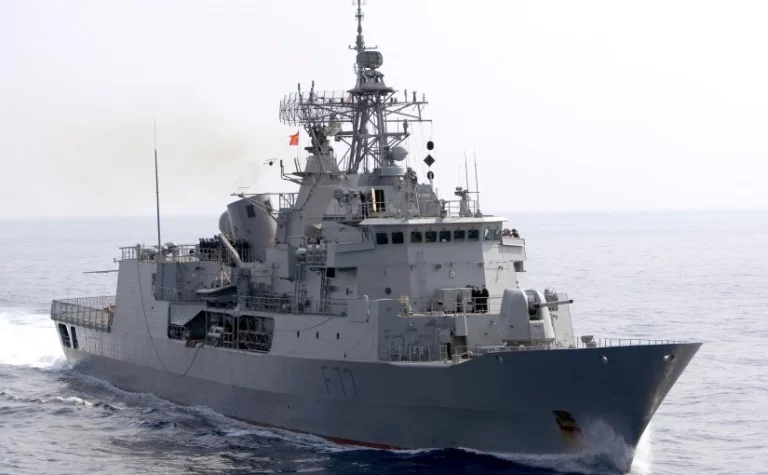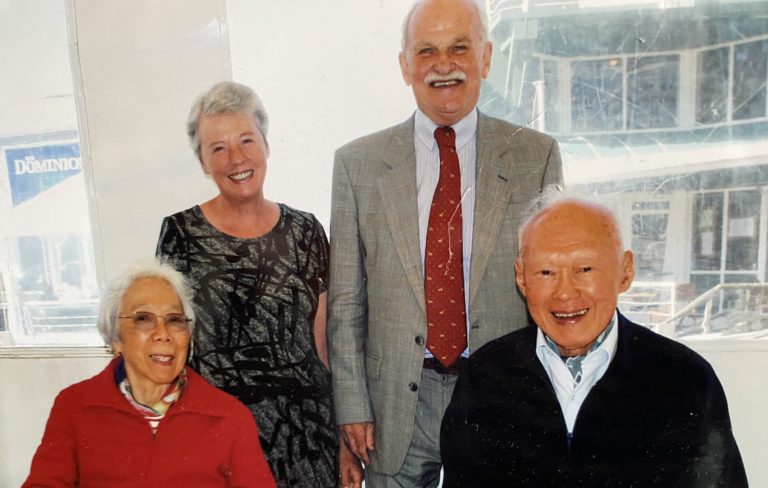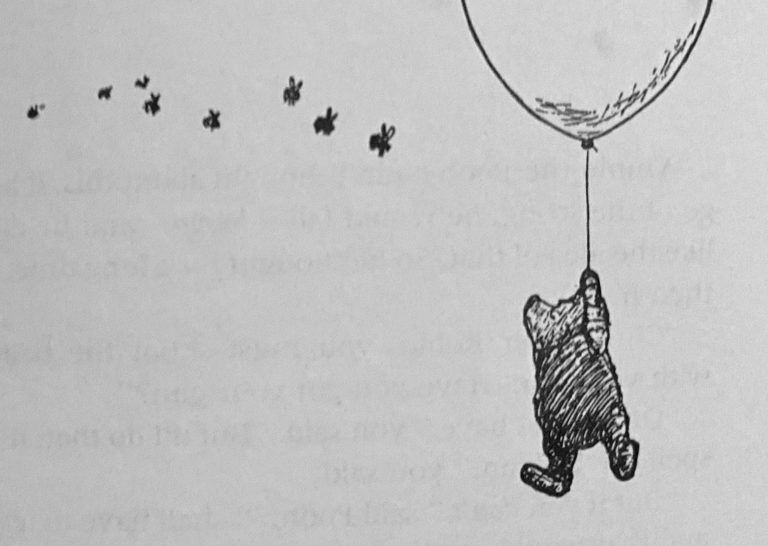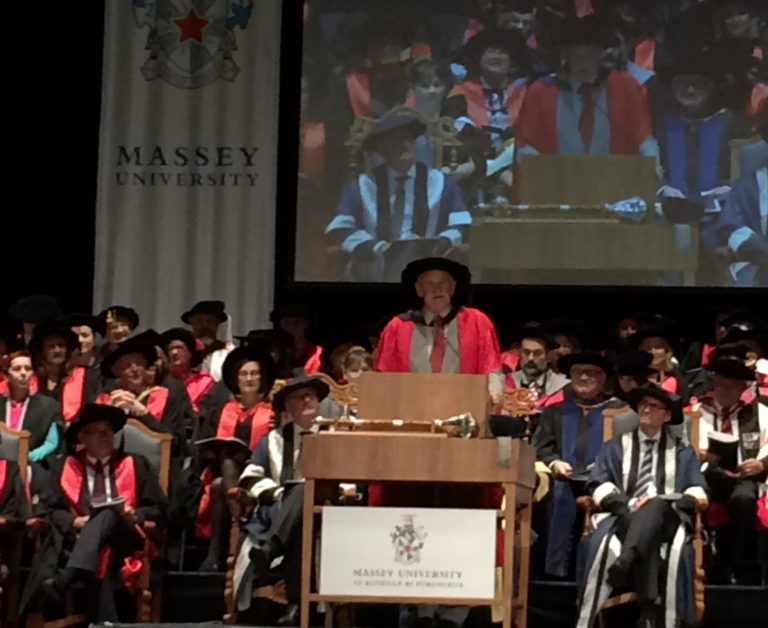Trafalgar and Lord Nelson
Speech given on the Bicentennial, at the Christchurch Club
I had better begin by admitting that I have no naval qualifications for speaking to you tonight. My attempt to join the Navy at the age of eighteen left both parties a little scarred. I was given a lengthy form to complete. Among a number of rather personal questions it said, “What do you want to be in the Navy?” Well, I thought, there is only one good reason for joining the Navy, and so I wrote ‘Admiral’ in the space.
When I came before the selection board and saw that it was presided over by a rather elderly commander, I wondered if tactically this had been the wisest answer. No mention, however, was made of this. Instead it was announced that my eyesight was not good enough. I pointed out that the eyesight of the world’s greatest admiral was much worse than mine, but my arguments were cut short by the cry of “Next!”
Fortunately, you do not have to be a naval officer or even an historian to reflect and be moved by the events off Cape Trafalgar two hundred years ago. It was the most decisive naval battle in history, but we do not drink to the immortal memory of the victory. Trafalgar was not only the climax of the long manoeuvrings of the two opposing battle fleets in the Napoleonic Wars. It was the climax, almost dramatically appropriate, of the life of Nelson. Today most of the navies of the English-speaking world, and the Chilean Navy, wear black on their uniform, not to commemorate Trafalgar but to remember Nelson. When the news of the battle finally reached London it was almost two days before the capital could bring itself, slowly, to put up illuminations and start celebrations. The horses drawing the mail coaches that carried the news to other towns wore not laurel wreaths but black crepe.
So this is Nelson’s night. He won an annihilating victory that delivered Britain from the threat of invasion and left her secure for a century. Yet two hundred years later we are still more fascinated by the story of that sickly and impulsive young naval genius who dominated naval warfare for ten years before Trafalgar and has cast his shadow over it ever since. There are few of us who could find Cape Trafalgar on the map but all of us know the ‘Nelson touch’, and all of us wish we had it.
He showed it early on by changing his name. He was in fact Horace Nelson. Horace for the first twenty years of his life until he quietly shifted to Horatio. The change showed his foresight. It would not have done for the world’s greatest naval hero to be called Horace.
He had also a great natural charm. When he was commander in chief in the Mediterranean, during the wearisome months of blockading Toulon a thirteen-year-old midshipman on his flagship was invited to dinner with him. Young Parsons never forgot coming into the great cabin brilliantly lit by the sun, the silver sparkling on the long table. He found himself seated on the Admiral’s right but concentrated on eating as much as possible while Nelson and his captains talked. When the cloth was removed, the Admiral turned to him and said, “Mr Parsons, would you take a glass with me?” They talked but when the Admiral learnt that the boy had joined at eleven his face darkened and he stared into the distance, muttering, “Too young. Much too young”.
Or take the frigate Blanche whose crew became restless to the point of imminent mutiny. She was called back to port for an enquiry but arrived battered by a severe winter storm. Nelson’s only action was to walk around the lower deck, shaking each seaman by the hand and congratulating him on his safe arrival. After that there was no hint of unrest; Blanche would have been honoured by the most difficult task the Admiral could command.
There was of course more to the Nelson touch than charm. He was a first-rate seaman. Starting early like young Parsons he had been at sea, mainly in smaller ships, for thirty years of his life, and his seamanship in emergencies was highly professional – but in this he was no different from most of his equally experienced captains. He was brave, losing famously an eye and an arm in hand-to-hand combat on shore and he was the only officer of flag rank ever to have led a boarding party aboard an enemy ship. But he had brave captains too. Where he excelled was his intelligence, his quickness in decisions and his complete confidence once he had made them.
In other ways his nature was less than admirable. He was vain, wearing on his coat as many foreign orders as he could collect – looking like “a gig from ribands, orders and stars” said a tart London lady. When you look at the coat in the Greenwich Naval Museum it is not difficult to conclude that this vanity was the immediate cause of his death. He was also prone to self-pity, worries about his health and fits of irritability, especially with his superiors. He could be obsequious where royalty was concerned and behaved dishonourably over the rebellion in Naples. And in the humdrum days of watching the French in the Mediterranean he neglected his duties to be ashore with Emma Hamilton.
His captains knew all this and deplored it in their correspondence with one another. None of them thought for a moment that this detracted from his abilities as a commander; just that they wanted their commander’s reputation to shine as brightly as their regard for him. For all these defects were the peacetime Nelson. The moment there was a challenge the admiral was confident, quick-thinking, even happy those near him thought. When he caught up with Napoleon’s fleet in Egypt the afternoon was well-advanced. He called a quick conference on his flagship and told his captains that they would sail into Aboukir Bay at once and attack. They all knew that this meant an action fought at night in shallow and shoaling waters. No-one raised any objection; they trusted him.
And he trusted them. His captains could not have achieved what they did without Nelson. But the Nelson touch would equally not have worked without those experienced and knowledgeable professionals. At Trafalgar not everyone received Nelson’s famous signals with the reverence they have since acquired. Admiral Collingwood on Royal Sovereign grumbled, “I wish to God Nelson would stop sending us those damn fool signals. We all know perfectly well what we have to do today”. Nelson made sure that they did, by summoning the captains to a council before an engagement, not to discuss what to do – he had already decided that – but to ensure that they all knew what he wanted. The battle plan that has survived for Trafalgar looks more like a brief doodle, the roughest of sketches. After that it was up to the captains. Sailing into Aboukir Bay Captain Foley in Goliath suddenly decided that the shoal water on the inside of the French anchorage was deep enough and led a line of ships down to ensure that the French were unexpectedly attacked from both sides. It had been no part of Nelson’s plan but he was delighted at Foley’s initiative.
There was a third ingredient of the Nelson touch – the skill and confidence of his crews. The ships themselves were not always the best; for all the oratory about ‘hearts of oak’ the Navy itself believed that French and indeed Spanish ships were stronger and better constructed. But the Navy had mastered the complicated organisation required to keep ships at sea and on station for weeks and even months at a time. A hundred years earlier the fleet could not stay in the Channel for longer than six weeks without shortages of food and water, and even outbreaks of scurvy. In June 1805 Nelson could note that he had stepped ashore from Victory for the first time in two years.
And when it came to gunnery, the British warships were unbeatable. All those days on blockade, rolling the great guns out and in, practising loading, shotting and firing as often as the parsimony of the Navy Board allowed – all that ‘exercising the guns’ resulted in a rate of fire at least double that of other fleets. The French prisoners on board Victory after the battle told their captors that “The Devil loaded the guns for it was impossible for men to load and fire as quick as we did”.
As a result, Nelson could adopt the tactics he did at Trafalgar. The combined French-Spanish fleet was strung out in a long crescent. To attack it in two columns at right angles was not in itself a new concept. What made it revolutionary was that only Nelson’s fleet could manage it. Only a British admiral could be confident that his ships and crews would have the steadiness to take enemy fire long before they could return it themselves. As the two fleets drifted closer on the long glassy swells Victory for example was under fire for twenty minutes and had taken fifty casualties before she fired a shot. This was discipline of a high order. Then, as she came under the stern of the French flagship she fired her first devastating broadside, down the length of the French gun deck. No-one who saw it ever forgot the horror of that gun deck, virtually swept clean of guns and their crews.
The combination summed up in the Nelson touch produced a victory like no other in naval history. Seapower alone could not defeat Napoleon – that took another ten years and a climactic land battle near Brussels. Trafalgar, however, ensured that Britain could no longer be forced out of the war. Command of the sea gave her the option of intervening where and when she chose. Without Nelson, Wellington’s long campaign in the Peninsula and subsequent invasion of France would not have been possible.
In some ways, though, the drama of Trafalgar and of Nelson left a burden on the Royal Navy. An annihilating victory became the test almost the expectation of the British public. It was what Nelson did and was the standard by which other conflicts and other admirals were judged. The battle of Jutland in 1916 had the same strategic effect as Trafalgar: it ended the threat from the German High Seas Fleet. It had nothing like the same public effect: penning the enemy ships in port was not the same as sinking them.
Admiral Jellicoe was a cautious man; he did not have the Nelson touch. In his defence it was rightly said that he was the only man on either side who could have lost the war in an afternoon. But then the same risk confronted Nelson. If he had lost at Trafalgar Britain’s small and inexperienced land forces could hardly have repelled Napoleon’s battle-hardened regiments. There is no sign that it worried him. Where Nelson gave guidance, Jellicoe believed in control. His captains were called back as the light failed and not allowed to continue their pursuit of the German ships.
And finally the British ships and their gunnery were quite simply not as good as the German. “There’s something the matter with our bloody ships today”, Admiral Beatty famously said when a second battle-cruiser blew up. In these important ways the lessons of Trafalgar had been forgotten; the achievements preserved in the immortal memory had become coated with ritual, the Royal Navy had fallen behind. So there was disappointment and a niggling sense of failure about Jutland. “Where is our Nelson?” the critics asked, in books with titles like The Jutland Scandal.
Yet there was one part of the Nelson tradition which has never been lost in all those navies which inherited his memory. “Engage the enemy more closely”, signal No 16 which was his last signal and which flew from Victory’s mainmast throughout the battle. Of course Collingwood complained. Everyone knew the number by heart. Nelson always raised it in battle; engage the enemy more closely was the central tenet in his creed. “No captain”, he had said in earlier instructions, “can do very wrong if he places his ship alongside that of an Enemy”. This command was all that an admiral could do. Once battle became general, the smoke made further signals useless and the struggle was waged between individual ships.
‘Engage the enemy more closely’ has left a long and lasting legacy. It has descended to the Royal New Zealand Navy, in the manner in which Achilles and the other two cruisers, though outgunned, engaged the battleship Graf Spee, and in the doughty battle the minesweepers Moa and Kiwi fought with the Japanese.
Let me give two further examples, not known to the history books and taken almost at random. Early in the Second World War the cruiser Belfast was patrolling north of the Orkneys when in the gloom of a winter afternoon those on her bridge saw two smudges of smoke on the horizon. Assuming rightly that they must be German ships her captain immediately altered course to engage them. There were in fact three German ships, the battleships Scharnhorst and Gneisenau and the heavy cruiser Hipper, any one of which was more than a match for the British cruiser. The Germans however were not trained in the Nelson tradition. When they watched the cruiser closing the range as fast as she could, they did not think she was engaging the enemy more closely; they came to the more rational conclusion that she must be the van of a much larger squadron. So the German ships turned and went home and Belfast’s courage saved an unknown number of ships and lives in the Atlantic.
Or take another, perhaps less edifying, illustration. In 1942 the Royal Navy was critically short of submarines and the officers to man them. An elderly Australian reserve officer was paired with an equally elderly submarine and both were sent off to patrol in the Mediterranean. They hunted in vain for some months, as the captain’s frustration rose. The submarine even followed an Italian cargo ship into port, trying to get a shot at it. Once inside the captain became understandably uneasy about his position and cautiously raised his periscope. All that appeared in the mirror was a donkey flicking its ears. They were so close in they were looking at a fruitseller’s donkey standing on the quayside. Withdrawing hastily the submarine a few days later was able at last to get off a torpedo and the crew were bemused to see their commander dancing up and down beside the periscope shouting, “Bugger me, I’ve hit one”. The words were not perhaps what Nelson would have used but he would certainly have recognised the spirit.
We may be tempted to see these events, let alone what happened two hundred years ago, as an historical curiosity. We are after all another country, in another part of the world – exactly the antipodes of Cape Trafalgar in fact. We might be tempted, but we would be mistaken. For our country is the child of seapower, and the Royal Navy was our midwife. It was seapower that enabled a new country to be built here; seapower that enabled us to grow rich on agricultural exports. That we could send our produce halfway around the world in complete security may seem a commonplace fact, but we could only do it in the nineteenth century because of the dominance of the Royal Navy. It has gone from our waters now, but for an island nation like New Zealand the question of who controls our ocean approaches will always determine who we are and how we live. When we drink to the immortal memory we might reflect on that uneasy fact, and we might remind ourselves that Trafalgar is an important anniversary of our own. But for Lord Nelson, his captains and his ships we would not be here.
